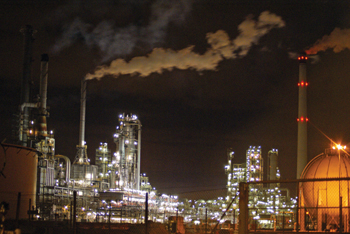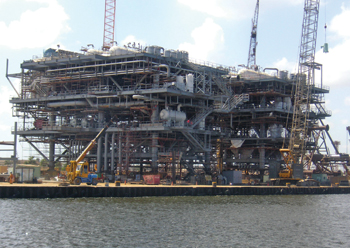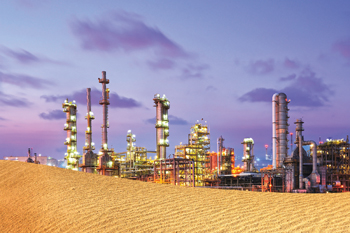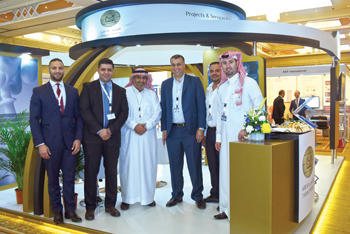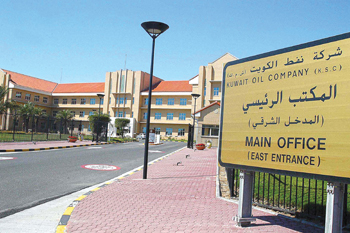
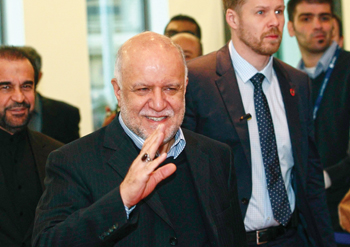 Zanganeh ... wanting privatise the Dorra field
Zanganeh ... wanting privatise the Dorra field
The Dorra gas field sits in offshore waters in the Neutral Zone, a 5,000 sq km area that is shared by Saudi Arabia and Kuwait in a pact that dates back to the 1940s
Kuwait summoned Tehran’s charge d’affaires and handed him an official complaint over concerns that the Islamic republic had published materials advertising opportunities for investment at the disputed Dorra gas field.
The shared offshore gas field has been a bone of contention between Tehran and Kuwait since the 1960s. In 2012, Iran said it was going to develop the portion of the field under its control, but those plans never materialized, in no small part because of stringent Western sanctions placed on Tehran that year for its controversial nuclear programme.
Iranian Oil Minister Bijan Zanganeh has said his country would prioritize the development of hydrocarbon fields that straddle its borders following the removal of sanctions, which experts predict probably will not happen before March or April 2016.
The Dorra gas field sits in offshore waters in the Neutral Zone, a 5,000 sq km area that is shared by Saudi Arabia and Kuwait in a colonial pact that dates back to the 1940s. Under a treaty signed after the discovery of oil in the zone, Saudi Arabia and Kuwait agreed to split all hydrocarbon wealth 50-50.
Iran, however, claims its share of the field, which it calls Arash, and has included it on a provisional list of 50 fields to be offered to international companies this December in London.
Arash, if included in the final list, will be tendered under a new model, called the Iran Petroleum Contract, which Iran promises will be much more attractive than the unpopular buyback contracts first offered in the 1990s.
According to a statement issued by Kuwait’s foreign ministry and carried by Kuwait’s state news agency Kuna on Wednesday, there has been no change to the status quo of the offshore field which is located between Kuwait, Saudi Arabia and Iran.
'The foreign ministry is taking all the necessary measures to safeguard the rights of the state of Kuwait within the context of reinforcing its ties on the regional and international levels and which conform to international law,' Kuna reported.
The Dorra field is estimated to hold 60 trillion cubic feet of gas, according to the US Energy Information Administration. Gas-short Kuwait is keen to develop the field, but plans to produce some 1 billion cubic feet per day by 2020 were shelved in 2013 after it could not agree on a joint development plan with Saudi Arabia.
'This field belongs to Kuwait and I don’t understand why Iran is going after it. It has enough gas and until now Kuwait has been putting off going to the international courts, saying that this issue can be resolved amicably. But now I think they might have to go to court if Iran insists,' says Kamel Al-Harami, a Kuwaiti independent analyst.
Following the Islamic republic’s signing of the landmark nuclear agreement in July, Iran wants to accelerate the development of its oil fields, which have suffered years of underinvestment.
Kuwaiti sources doubt that Iran will actually be able to race ahead with Arash, however. No firm will touch the field until sanctions are lifted, and even then, 'companies are hesitant to work on fields that are in dispute – let alone fields in dispute by three parties,' said one industry source.Relations between Kuwait and Iran have soured lately after a huge weapons cache discovered in Kuwait in July was linked to Iran in reports by the Kuwaiti press.Saudi-Kuwait ties also had been strained because of a political dispute over the 400,000 barrel per day producing fields in the Neutral Zone.



































































